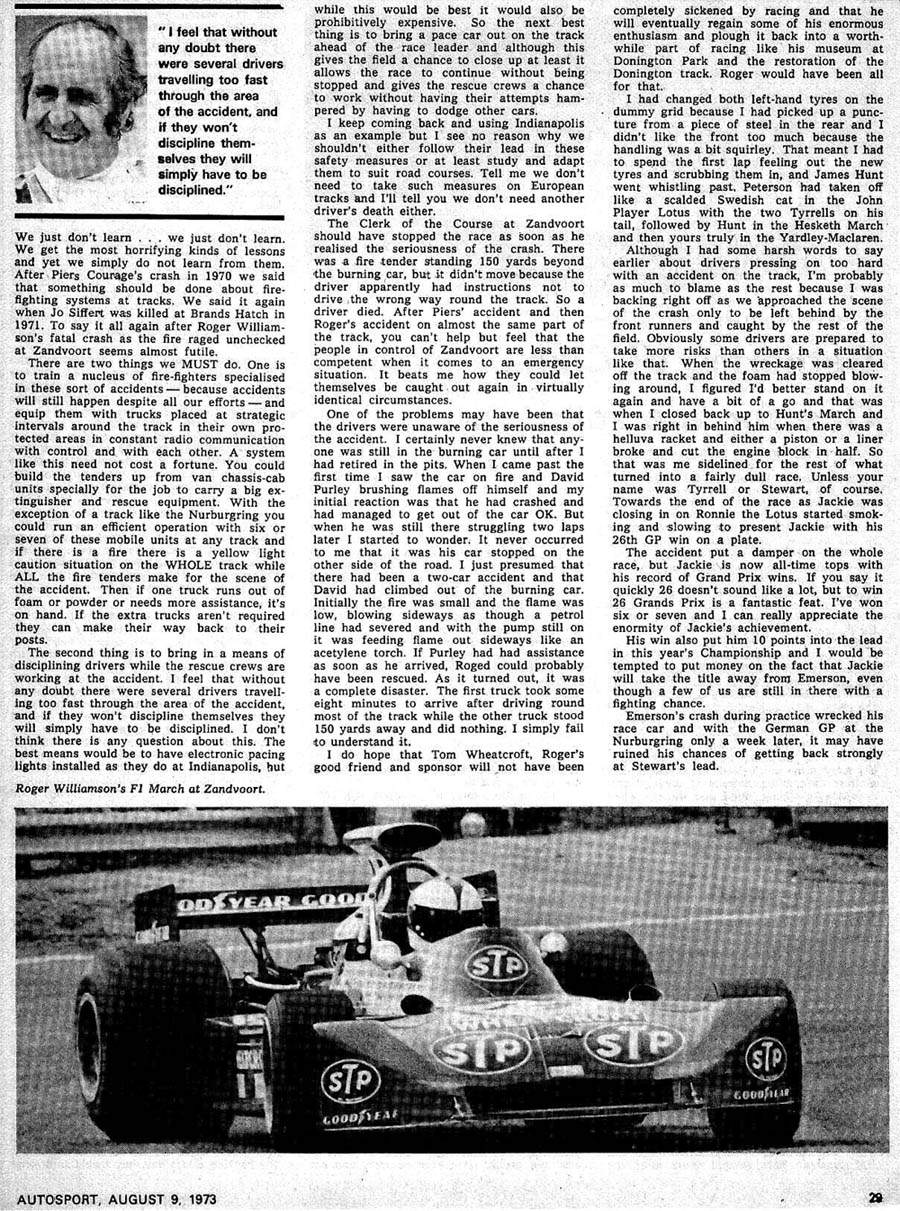ATL11
Pole Sitter
Just watched here in the UK on the BBC 4 channel, the summary of the program was:
Jackie Stewart & other drivers look back to the the 60's & 70's, when motor racing was a deadly dangerous sport.
I already knew about a lot of the stories around the likes of Jim Clark, Rindt, Von Trips but it still amazes me how futile it must have felt for the drivers and Jackie Stewart to get the basics in safety sorted.
e.g. Jackie asked for some trees to be removed @ Brands as they were dangerous & the organisers gave him a saw.
Just glad they learned so much then which helps us now:
Luck?
Jackie Stewart & other drivers look back to the the 60's & 70's, when motor racing was a deadly dangerous sport.
I already knew about a lot of the stories around the likes of Jim Clark, Rindt, Von Trips but it still amazes me how futile it must have felt for the drivers and Jackie Stewart to get the basics in safety sorted.
e.g. Jackie asked for some trees to be removed @ Brands as they were dangerous & the organisers gave him a saw.
Just glad they learned so much then which helps us now:
Luck?



